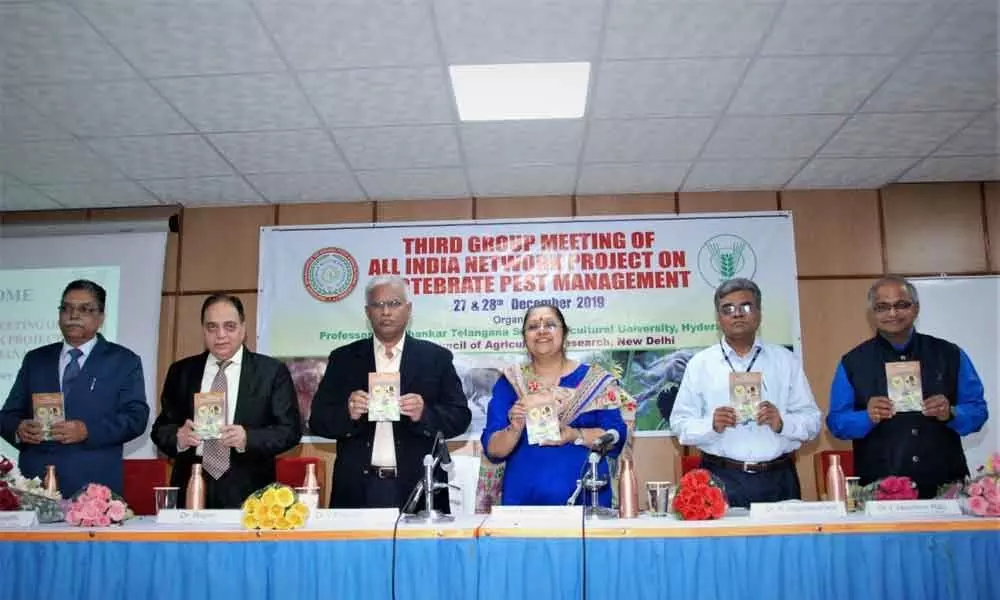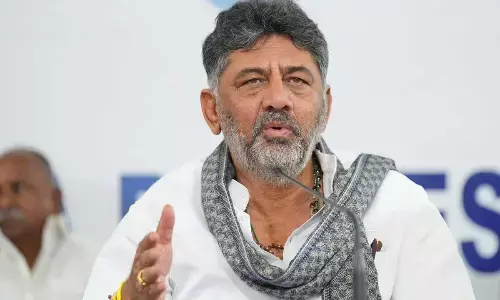Two-day group meeting of AINPA on VPM starts in city
 Principal Chief Conservator of Forest R Shobha along with PJTSAU Vice-Chancellor Dr V Praveen Rao, Dr Rajan, Assistant Director General (Plant Protection and Biodiversity), ICAR New Delhi and others in Hyderabad on Friday
Principal Chief Conservator of Forest R Shobha along with PJTSAU Vice-Chancellor Dr V Praveen Rao, Dr Rajan, Assistant Director General (Plant Protection and Biodiversity), ICAR New Delhi and others in Hyderabad on FridayPrincipal Chief Conservator of Forests R Shobha said the best way of vertebrate management will ensure the safety of wildlife and reduce the degradation of forests and also reduce the crop losses.
Hyderabad: Principal Chief Conservator of Forests R Shobha said the best way of vertebrate management will ensure the safety of wildlife and reduce the degradation of forests and also reduce the crop losses.
She spoke at the inaugural session of a two-day 3rd All India Group Meeting of AINP (All India Network Project) on Vertebrate Pest Management (VPM) which was inaugurated at Professor Jayashankar Telangana State Agricultural University (PJTSAU) on Friday.
The two-day group meeting was formally inaugurated by Principal Chief Conservator of Forest R Shobha along with PJTSAU Vice-Chancellor Dr V Praveen Rao, Dr Rajan, Assistant Director General (Plant Protection and Biodiversity), ICAR New Delhi.
Shobha said to reduce the crop losses biological vertebrate management practices are very much needed for the protection of wild animals instead of killing them.
She urged the scientists, that they must focus on the research programmes to develop biological control methods for ensuring the wildlife protection and safety and also ensures the crop losses for farmers.
The PCCF suggested it is also required to educate the farmers to use biological pest and diseases management methods instead of using pesticides which are not only harmful to wild animals but also harmful to human beings.
Due to the forests encroachment and man-made activity, the population of some of the wild animals decreased very rapidly.
She said that in 1930 there were 40,000 tigers in the Indian forests. But the same has come down to 2,967 now, she said.
Dr V Praveen Rao suggested that vertebrate management cannot be studied isolate, it should be an interdisciplinary, multidisciplinary.
He suggested the scientists to make use of digital technology for achieving better research results.










